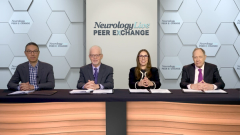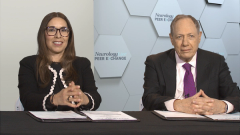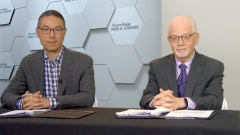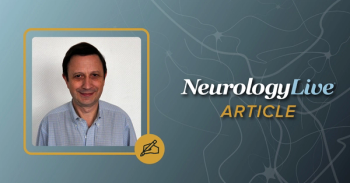
Initiating Treatment and Goals of Therapy for NMOSD
Expert neurologists review treatment goals in patients with neuromyelitis optica spectrum disorder and share insights on long-term disease-modifying therapies.
Episodes in this series

Brian Weinshenker, MD: We’re going to turn to discuss issues that relate to treatment selection for NMOSD [neuromyelitis optica spectrum disorder], and Dr Nelson, I wanted to ask you to summarize for us what are the goals of treatment in NMOSD?
Flavia Nelson, MD: Absolutely. We talked about irreversible damage and disability, and that is the main reason to treat NMOSD. So, the goals from every DMT, or disease-modifying therapy, will be to decrease inflammatory response and therefore the formation of lesions in the central nervous system as well as to reduce the number of attacks in the future.
Brian Weinshenker, MD: I suppose there are different goals at different stages. If a patient is experiencing an acute attack that might be an opportunity to intervene acutely and restore function and maybe we can talk about some of those treatments.
Flavia Nelson, MD: Absolutely. So, as you said, there are 2 different types of treatment. One is to prevent the disease from progressing and 1 is to treat the relapses. For an acute attack, we need to intervene with high-dose steroids or plasma exchange to reduce the inflammatory response and prevent irreversible tissue damage. And then we can use the long-term treatments to prevent the immune response from causing more lesions and attacks.
Brian Weinshenker, MD: Right. And I suppose in general prevention of problems that is usually the preferred treatment. I’m going to turn to Dr Miller and ask him, at what point in the process of diagnosis and following patients do you consider instituting a long-term preventative treatment?
Aaron Miller, MD, FAAN: Instantaneously. I start to consider as soon as I have the inkling that this is NMOSD. Of course, it’s going to take a little time to get the serology back, but you can have an inkling right away. I’m going to start thinking about it right away because this is a disease where the attacks can be devastating and they’re unpredictable. They can come at any time. So, you want to get a person on an effective disease-modifying therapy as quickly as possible.
Transcript edited for clarity
Newsletter
Keep your finger on the pulse of neurology—subscribe to NeurologyLive for expert interviews, new data, and breakthrough treatment updates.













